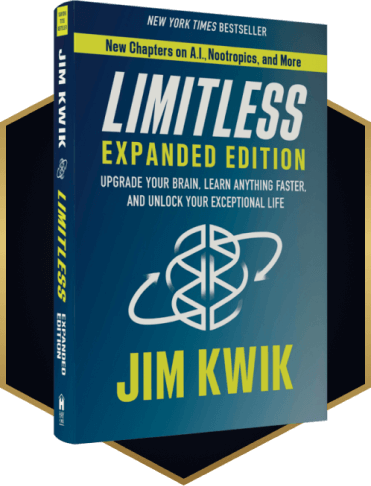You already know kindness is good for your soul. But did you know it’s good for your brain? It turns out, being kind can actually reshape your brain.
Kindness Rewires Your Brain for Positivity
When you practice kindness, chances are you are familiar with the warm feeling that goes along with those acts. You might notice that your mood is elevated, your confidence is bolstered, or you’re motivated to do more. These effects go beyond just feeling nice.
It turns out, when you’re kind, you brain releases a plethora of neurochemicals afterwards. These include dopamine, serotonin, and oxytocin, all the so-called “feel good” chemicals. Combined, they elevate your mood, increase your overall sense of well-being, and activate your empathy. Being kind not just makes you feel good, it makes you want to continue being kind.
Researchers have discovered that engaging in acts of kindness can also form new neural connections by activating multiple parts of the brain. These new connections can enhance your brain’s ability to process positive emotions and regulate stress.
Kindness Creates a Ripple Effect of Happiness
Have you ever engaged in a random act of kindness? Maybe you decided to pay for the coffee of the person behind you, or showed up at a friend’s house to help with a massive chore as a surprise. Not only do you receive the brain benefits of all those feel-good neurochemicals, you also activate the same response in the recipients brain. This phenomenon is known as the “ripple effect of kindness”.
Research shows that when you’re performing kind acts, the ripple effect casts an incredibly wide net. The more you practice kindness, the more likely the people around you will do the same. And the effect continues to spread from there. It becomes a self-perpetuating cycle that can build a momentum of its own. The best part is, that kindness will eventually come back to you, and you can start the cycle all over again.
Kindness Boosts Your Emotional Intelligence
It should come as no surprise that practicing kindness can actually boost your emotional intelligence, or your EQ. EQ is the ability to understand and manage your own emotions while empathizing with the feelings of others.
There are five elements to emotional intelligence: self-awareness, self-regulation, motivation, empathy, and social skills. And kindness helps improve them all. You have to be self-aware and have the ability to self-regulate. You’re not always going to be in a good mood, but self-aware people who can regulate themselves know that yelling at the barrista isn’t going to make them feel better.
Kindness triggers your empathy. You start to understand how people work, which gives you insight into yourself. This helps you become in tune with unspoken cues signaling emotional needs and the corresponding feelings. This heightened emotional awareness strengthens your relationships, which motivates you and builds your confidence.
And because you have to engage with others to be kind, it improves your social skills by giving you the ability to navigate complex social situations with grace and understanding.
Putting Kindness into Action
Now that we’ve unraveled the science behind the magic of kindness, it’s time to put this superpower to work in your everyday life. Here are a few simple ways you can incorporate kindness into your routine.
Start Your Day Right: Begin your morning by sending a heartfelt message to a friend or family member. It could be a simple “Good morning!” or a genuine compliment. Watch as your day – and theirs – lights up!
Random Acts of Kindness: Challenge yourself to perform at least one random act of kindness each day. Whether it’s holding the elevator, offering a genuine smile, or leaving a positive note for a coworker, these little gestures go a long way.
Listen with Intent: When engaging in conversations, practice active listening. Put away distractions and genuinely tune in to what the other person is saying. Your undivided attention is a gift. Learn to give it abundantly and watch how you receive it in return.
Volunteer Your Time: Find a cause you’re passionate about and dedicate some time to volunteer work. Not only will you make a difference in the community, but you’ll also experience the positive effects of giving back.
Practice Self-Kindness: Remember, kindness starts with you. Treat yourself with the same compassion and understanding that you extend to others. Practice self-care, set healthy boundaries, and celebrate your achievements.
Conclusion
Kindness can rewire your brain leading to a happier, more confident you. It spreads positivity, improves the lives of those around you, and builds your emotional intelligence. It costs you nothing, but it can give you everything. The world can always use more kindness. And your brain will thank you.
For more on how kindness and gratitude rewires your brain, watch this video:







